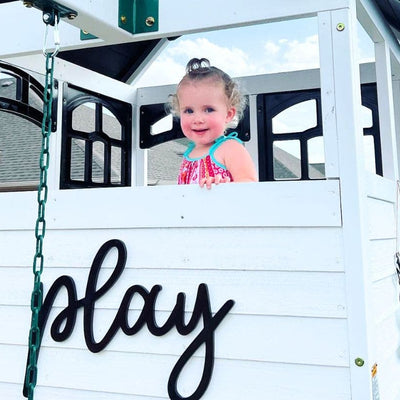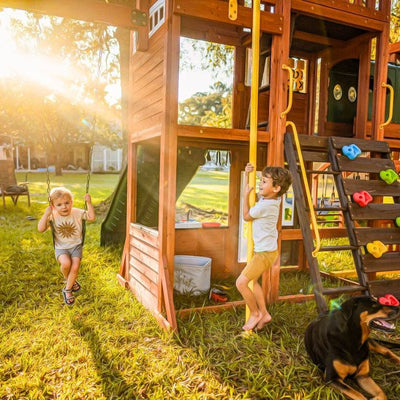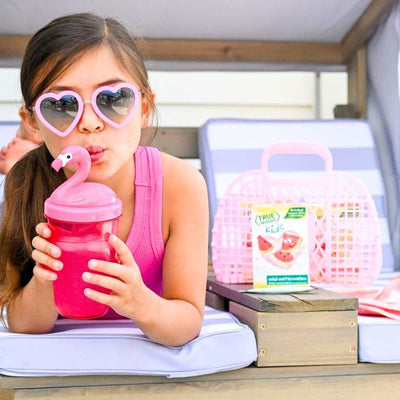How to Encourage Independent Play

By recognizing the value of independent play, parents can encourage their toddlers to embrace solo playtime, fostering a sense of exploration and self-discovery that’s invaluable for their overall development.
Ideas for Encouraging Independent Play in Toddlers
By implementing the following ideas, you can reduce the need for constant adult involvement and cultivate a love for solo playtime in your little ones.1. Set Up an Environment that Fosters Independent Play
Creating an environment that is both safe and engaging for your toddler is key to fostering independent play. Stock the area with toys and materials that encourage exploration and creativity, such as building blocks, puzzles, and pretend play toys like dress up clothing and a play kitchen. Additionally, incorporating age-appropriate books and art supplies, including an easel, can further stimulate your child's imagination and independent play.2. Create a Toy Rotation Schedule
By setting up a rotation, you can periodically swap out the toys available for your toddler, bringing back the ones they haven't seen in a while. This way, each time the toys come back into view, it's like discovering them all over again, sparking fresh interest.
This simple strategy combats boredom and prevents toy fatigue. It creates an environment of excitement and anticipation as they never know what they might find when the toys are rotated. As a bonus, having fewer toys out at once can also promote better focus and deeper engagement.3. Let Their Interests Guide Activities You Set Up
Whether it's a fascination with animals, building blocks, or imaginative role-playing, tailoring play setups to match your child’s interests can create engaging and fulfilling independent play experiences.
For example, if your toddler adores going to the zoo, you can set up a pretend zoo experience at home with stuffed animals and sectioning off different zoo exhibits using blankets and pillows. You can even set up food areas with a pop-up restaurant and smoothie stand. As your child becomes immersed in this imaginative world, they’ll naturally engage in extended play that fosters creativity and cognitive development.
Incorporating a child's interests into play experiences encourages a sense of ownership and independence. As they revel in activities that speak to their passions, toddlers become more enthusiastic and willing to immerse themselves in solo play, nurturing a genuine interest in independent exploration.
Follow these toddler independent play ideas and you’ll be off to a great start for encouraging independent play in your kids. Explore KidKraft online to find the perfect toys and activity sets for independent play and shop the best toddler toys by age.





